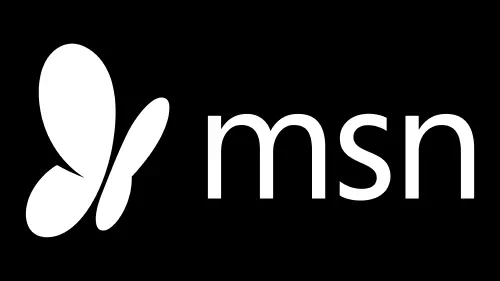How eCommerce Businesses Can Use ChatGPT For Marketing

Still hesitant to use AI for your eCommerce business?
The tech has become so advanced that ignoring tools like ChatGPT is now a competitive disadvantage.
Let’s get you up to speed on how you can set up this new tool, start using it to market all of your great products online, and grow your eCommerce shop faster and more efficiently in the process.
Understanding ChatGPT #
ChatGPT is a conversational large language model developed by OpenAI. It was released in November 2022 and has since taken the internet by storm, maintaining a user base in the hundreds of millions as of July 2023.

From a holistic perspective, ChatGPT is really just a commercialized version of one of OpenAI’s many Generative Pretrained Transformer models. The company has been working on them for years and actually released its first model, GPT-1, back in 2018. After it came GPT-2 in 2019, GPT-3 in 2020, and the model ChatGPT first used as standard, GPT-3.5, in 2022. OpenAI then released GPT-4 in 2023. Each model is more complex. They work faster, produce better results, are trained on more documents, and have more memory (the context window) to remember the conversation you’re having with it.

All of these language models work similarly – by referring to training data when coming up with a response to user inputs. They have a kind of transactional mindset, taking into account both the context and content of a conversation before coming up with an appropriate output.
ChatGPT is set up in a way that makes it easy for people to plainly state what they want and get a generally-decent human-like output. This lowers the barrier to entry for countless individuals and businesses who wouldn’t have otherwise been able to use natural language processing technology.
Leveraging ChatGPT for eCommerce Brands in Marketing #
So what does that mean for ecommerce? People are now using it for everything from creating custom chatbot experiences on websites and within apps to helping platforms like Slack generate automatic responses for users.
One of the most accessible and valuable uses for eCommerce brands is marketing. We’re talking everything from website copy to product descriptions here.
The ecommerce ecosystem finds particular benefit in sophisticated natural language processing, as it can be used to quickly write answers to customer inquiries, design persuasive email campaigns, and even provide product recommendations
Want to start working with ChatGPT and providing instructions (prompts) for excellent marketing content to build visibility for your eCommerce store?
We’ve got some great resources to dive in:
ChatGPT can also act as a marketing consultant of sorts for decision-makers with limited experience or resources in-house. It’s now possible to get well-informed answers to questions, branding ideas, and even full marketing plans in a matter of seconds.
Whether you’re a seasoned marketer, a solo entrepreneur, or someone who’s recently entered the field of eCommerce copywriting, ChatGPT can help take your productivity to the next level.
Developing a Comprehensive eCommerce Marketing Plan #
Making and executing an eCommerce marketing plan is a multi-step process. Whether you’re focused purely on website conversions, email marketing, advertising, or organic search engine optimization, you’ll only be as successful as your plan.
Done the conventional way, ecommerce marketing projects require days, if not weeks of work, planning, and outside help. ChatGPT has the capacity to do a lot of the heavy lifting involved in the process, cutting the time and resources it requires drastically.
Creating a Digital Marketing Strategy #
A digital marketing strategy acts as the roadmap for an ecommerce brand’s goals. ChatGPT can be used to analyze store data and craft a plan of action that caters to specific customer segments, incorporate the most promising digital channels to reach those customers, and take into account factors like budget, target audience, and messaging.
How? Using ChatGPT for your ecommerce site’s digital marketing plan is a lot easier than you may think.
AIPRM Prompt: Target audiences with places (media channels)
This prompt calls the chatbot to serve media channel recommendations (like Instagram, TikTok, and Facebook) by considering things like a brand’s name, market, and customer base.

So let’s try this out for the following fictional brand:
- Name: AquaVerve
- Category: Health Products
- Target Audience: Health enthusiasts
- Key Product: Alkaline water bottles
- Location: California

About SEM, Affiliates, Referrals, Direct Mail, and Podcasts?

Setting Clear Marketing Objectives #
eCommerce marketing objectives can be hard to define, especially when you have lots of products to sell and don’t know how to compare their appeals in a quantifiable way. ChatGPT can help your brand decide what objectives make the most sense for its offerings, as well as the best way to gauge success against those goals.
This can go beyond simply selling products – from brand recognition to site hits, there are plenty of great things to be achieved through ecommerce marketing campaigns.
AIPRM Prompt: S.M.A.R.T. Goals for Digital Marketing Plan
Tailored to the framework for goals that are Specific, Measurable, Achievable, Relevant, and Time-Bound. This prompt is designed to generate a comprehensive set of goals for your ecommerce businesses.

So in this example, we’re going to check out the output for the fictional eCommerce brand:
- Business Name: ElderEase
- Business Description: ElderEase specializes in designing, manufacturing, and distributing household gadgets tailored to meet the unique needs of the elderly community.
- Objectives: Sales and Brand Awareness, Customer Loyalty, Digital Engagement
- Digital Platforms: Amazon, Facebook, YouTube

Identifying Your Target Audience #
In ecommerce, a target audience is a group or demographic of people that is likely to purchase a brand’s product. It’s important that they be identified in detail during the planning process so that marketing efforts can be tailored to them.
AIPRM Prompt: Buyer Personas & Target Audience PRO

This ChatGPT prompt can help brands understand their target audiences and develop strategies for reaching them effectively through the right places.
For instance, let’s say you run a fishing gear website. Running its relevant information through ChatGPT with this prompt would return a comprehensive profile of who is the most likely to buy your products – people with an interest in the outdoors, who own boats, or that live in waterfront areas.
Let’s try this for a fishing shop in the Ozarks.

How about marketing channels and strategy?

Creating a Brand Persona with ChatGPT #
Brand personas often reflect target audiences – they refer to the ‘character’ or tone an online store uses when interacting with customers. Personas need to not only align with how marketing strategies are approached, but also the ideas, goals, and values of digital sellers and their buyers.
Starting from scratch? Try this prompt.
AIPRM Prompt: Brand Creator

This prompt can churn out a detailed brand persona with nothing more than a short explanation of a business idea, target group, and that target group’s goals.
Let’s see what happens when I add the following fictional brand:
- Business Idea: an e-commerce brand that offers trendy and high-quality footwear for fashion-forward individuals
- Target Group: style-conscious consumers
- Target Group’s Goals: They’re seeking comfortable and stylish shoes to complement their modern wardrobe

Now let’s get our brand personality and buyer persona:

How about our positioning strategy, statement, and website copy?

How eCommerce Brands Can Build Website Content with ChatGPT #
Building website content with ChatGPT can be an effective way for eCommerce brands to engage their target audience and increase user engagement. By leveraging the deep learning capabilities of AI technology, ChatGPT can be used to create interesting and relevant blog posts, product descriptions, social media strategies, and other web content that is tailored to the interests of their target consumers.
Toy websites targeting parents, for example, might choose to address their customers’ biggest concerns by publishing articles about safety. Tech sellers could simplify their customers’ buying journey with guides and how-tos. Great descriptions, explanations of uses, pros and cons – they’re all going to contribute to whether someone buys your product.
AIPRM Prompt: SEO Optimized Website Content | Google Friendly

Let’s try this fictional product from a craft store: a DIY craft kit designed specifically for children, providing them with all the necessary materials and instructions to create fun and engaging projects.
Our 3 target keywords are:
- Kids Craft Kits
- DIY Projects for Children
- Creative Kids Activities

This would be a great start for your product description page or a special dedicated page on your site.
What about another Product Description that’s a little tighter and dialed in?
AIPRM Prompt: Write an SEO-friendly Product Description

Our fictional product will be organic dog treats. We will supply the Prompt with the following Keywords and Product Features:
Keywords:
- Organic dog treats
- Natural dog snacks
- Eco-friendly dog treats
- Healthy dog treats
- Wholesome pet snacks
- Organic pet food
- All-natural dog biscuits
- Chemical-free dog chews
- Sustainable dog treats
- Non-GMO dog snacks
Features:
- Made from 100% organic ingredients
- Free from artificial preservatives, colors, and flavors
- Supports overall pet health and well-being
- Environmentally-friendly packaging
- Suitable for dogs of all sizes and breeds
- Nutrient-rich and balanced for a healthy diet
- Ethically sourced ingredients
- Biodegradable or recyclable packaging
- Tasty and palatable for even picky eaters
- No GMOs, pesticides, or harmful chemicals used.

Wow. A perfectly concise and compelling product description.
How ChatGPT Can Improve SEO for eCommerce Businesses #
Have you searched for a product on Google recently? It’s more visual, but the products that show up – they need to be relevant to the person searching.

The best way to do that is to provide as much written information about the brand, the product, and the targeted audience as possible. You’ve already done some persona building.
Let’s dive into website copy with Search Engine Optimization (SEO). We’ll make sure that Google has everything it needs for your products to rank high in the results.
Once a technical subject that required a background in coding and software development, ChatGPT makes SEO more accessible to businesses of all sizes.
Leveraging ChatGPT to Identify Relevant Keywords for eCommerce Content #
ChatGPT can help ecommerce sites identify the keywords that their target audience might use to find their products, then create content incorporating those same keywords.
- Tools
- Power Tools
- Power Tools for Dad
- Best Power Tools for Dad that don’t cost too much
See where we’re going with this?
Now keep in mind that ChatGPT is trained on data from 2021, so unless you’re using AIPRM’s Live Crawling, your keywords might be outdated to how people were searching then. But it’s still a valuable directional tool for established brands and products.
AIPRM Prompt: Generate Popular Keywords
All this prompt needs is a target niche or audience to generate a list of valuable keywords specific to that given industry.

The cool thing about this prompt is that it provides both short and longer-tail keywords. Check out the results for wireless earbuds.

And the long-tail keywords?

Enhancing On-Page SEO With ChatGPT #
On-page SEO encompasses things like content structure and quality, links, readability, photo descriptions, and author information. Anything visible.
AIPRM Prompt: 5x meta title and meta description
SEO titles and meta descriptions are made easy with this simple and straightforward prompt. Simply provide it with a keyword and sit back as it generates multiple compelling options optimized for search.

What if we returned to our Organic Dog Treats product/keyword? As we build out articles and organic content, these could point us in the right direction.

Okay, we can work with these!
Creating Persuasive eCommerce Email Marketing Campaigns #
Email marketing is a great way to reach potential customers and engage current ones. It can be used for special offers, product announcements, or simply as a way to keep in touch with your audience. ChatGPT enables businesses to create compelling messages that directly speak to their recipients and goals.
Creating Engaging Newsletters With ChatGPT #
Good news! You don’t have to be an email marketing expert to create engaging newsletters. ChatGPT can suggest headlines, topics, and content that are optimized to ecommerce customer interests.
AIPRM Prompt: Professional Newsletter Generator

Let’s see what happens when we ask for a Newsletter for our fictional company TravelTreks.

Use this as the baseline and start integrating it with your products. Bam. A fun and educational newsletter.
Utilizing ChatGPT for eCommerce Email Marketing #
eCommerce email marketing can involve a lot of things, from creating email campaigns and copy for abandoned cart emails to coming up with witty headlines. ChatGPT simplifies it all with curated content and insightful suggestions.
AIPRM Prompt: Write an Email Marketing Campaign

What if we tried:
- 3 Emails
- TasteTwist
- Food and Beverages
- Storytelling
- Short
- About: Our Flavor-infused tea and coffee blends for Tea and coffee aficionados
Email 1:

Email 2

Email 3

Recommended Cadence for the email campaign

A/B Testing Subject Lines and Content With ChatGPT #
With eCommerce, you’ve got to be so careful with your subject lines. Some audiences love emojis, some think it’s tacky. Some spam words like ‘free’ or ‘sale’ can be compelling, but they might end up unread in the junk folder.
A/B testing is nothing new – marketers have done it to weigh the prospective performance of their strategies for years. But what is new is the way it’s now being carried out. When prompted correctly, ChatGPT can automatically generate and even evaluate subject lines and content for high email open rates.
AIPRM Prompt: Cold Email Subject Lines | 70%+ Opens

Okay for the fictional luxury brand LunarLuxe:
Audience: Sophisticated consumers seeking premium, high-end products with an emphasis on modern elegance
The Benefit of the Products: LunarLuxe offers luxury goods that merge timeless design with contemporary flair, ensuring that customers not only receive a product of exceptional quality but also a statement piece that elevates their personal style or living space.
What the Business Does: LunarLuxe curates and designs luxury items, ranging from fashion accessories to home decor, that resonate with the beauty and mystique of the moon, promising an experience of opulence intertwined with modern aesthetics.

Designing Engaging Visuals with ChatGPT #
The power of generative AI extends far beyond words. ChatGPT can produce prompts for Midjourney and DALL·E 2. Creative visuals, graphics, and designs on a budget. Marketers see a lot of value in using these assets to both promote their brand and illustrate its vision with less work.
With the right prompt, you could create the perfect beach background and add in your sunscreen product with a free background removal tool and Canva. Get a picture of some jewelry and add it to an elegant vanity.
AIPRM Prompt: Photography-like Midjourney (v5) PROMPT Maker

Let’s ask for a prompt for a background for some designer high heels.
“Steps of Greece villa empty white platform in foreground”
Let’s see what we get in Midjourney.

Now you can take that background and use it with your product for stunning eCommerce visuals on your store.
ChatGPT and Content Marketing for eCommerce Businesses #
Content marketing is a broad discipline that eCommerce businesses can leverage to increase their visibility and reach more customers. From creating blog posts about trending styles and writing compelling product descriptions to crafting social media sale promotions and more – ChatGPT can do it all.
Leveraging Social Media for eCommerce Marketing #
With apps like Instagram, Pinterest, TikTok, and Facebook now offering ‘shoppable’ experiences on their platforms, ecommerce brands have a unique opportunity to drive sales with their content. ChatGPT can help generate catchy concepts that are tailored to each platform’s style and audience, thus increasing engagement and driving more conversions.
AIPRM Prompt: Boost Your Social Media Engagement: Proven Content Ideas

Let’s try this for:
- Niche: Plants, Gardening, and Horticulture
- Target: Plant Enthusiasts
- Platform: Instagram

AIPRM Prompt: Social Media Schedule

For this, what if we grabbed the following keywords for our education brand EduExplorers?
Keywords:
- EduExplorers
- Interactive educational tools
- Educational software
- Learning platforms
- EdTech solutions
- Innovative teaching tools
- Classroom technology
- Remote learning software
- Interactive e-learning

AIPRM Prompt: 30 Social Media Posts & Image Suggestions With 1 Click

What about actual social posts? Let’s try this one for VroomVogue a fictional eCommerce store for car enthusiasts…

Across all of your marketing channels, from planning to executing, you can see how AIPRM and ChatGPT can generate a ton of value and save you a ridiculous amount of time.
Addressing Concerns and Ethical Considerations #
While we could go on and on about the potential applications of GPT technology, it’s worth acknowledging the potential risks that come along with using it. Whether employed for ecommerce marketing or something as simple as customer service, language models are prone to make mistakes on the job.
The biggest concern experts have over the widespread use of ChatGPT is potential bias. As we established earlier, these models are only as good as their training data. Companies like Open AI try their best to ensure the information used in testing is fair and accurate, but such outputs are never guaranteed. There’s also the issue of security; AI-powered systems can be exploited like any other technology.
Ultimately, the responsibility falls to individuals and organizations who use GPT-based systems to ensure they are secure, accurate and ethical. That means training models properly; using only trusted data sources; monitoring outputs regularly for accuracy and fairness; setting clear expectations and boundaries; and responding quickly to any mistakes. Most find that the benefits outweigh the inconvenience of having to take these extra measures.
Striking a Balance Between AI and Human Touch #
Here’s a deep philosophical question to consider: Should AI create everything simply because it can? The role of human oversight in AI-driven marketing strategies is important from the perspectives of both authenticity and risk management. It’s not realistic – at least not yet – to hand the reins over to technology completely. Doing so wouldn’t just pose a risk to the effectiveness and accuracy of a campaign; it could damage customer trust.
That’s why it’s important to strike a balance between AI-powered capabilities and human touch, with oversight from marketing professionals who understand their industry intimately. Tools like ChatGPT can be extremely beneficial in making processes more efficient, but they shouldn’t be relied on entirely.
Frequently Asked Questions (FAQs) About eCommerce Marketing and ChatGPT #
Any questions about ChatGPT and ecommerce marketing? You’re not alone. This FAQ section will cross out some of the most relevant.
How does ChatGPT differ from traditional chatbots for eCommerce businesses?
Traditional chatbots are consumer-facing and designed to perform service-related tasks such as providing answers to simple questions or helping with ordering and shipping information. ChatGPT is specifically designed for the purpose of generating unique content, making it a viable tool for marketers who are looking to improve their campaigns.
Can ChatGPT understand and respond to customer queries in real time?
Yes. While ChatGPT is not a customer service tool, its conversational abilities can be leveraged to provide automated, real-time responses to customers.
How can ChatGPT improve customer engagement on eCommerce websites?
GPT technology can be programmed to provide customers with personalized product recommendations, answer any questions they may have, and even suggest other items that are similar to what they’re looking for.
Is ChatGPT capable of generating content in multiple languages for international eCommerce?
Yes. The language model behind ChatGPT is capable of both understanding and generating text in more than 95 languages.
What are the potential drawbacks of using AI like ChatGPT in eCommerce marketing?
The biggest risk comes with taking a “set it and forget it” approach – using AI without enough oversight or monitoring can lead to embarrassing mistakes.
Can ChatGPT assist in competitor analysis and market research for eCommerce businesses?
ChatGPT can provide insights into competitor strengths and weaknesses, identify trends, and identify new opportunities when given the right information.
How does personalization with ChatGPT impact the customer buying experience?
ChatGPT can provide customers with tailored suggestions and offers based on their past purchases or browsing history. This helps to create a more personalized experience for each customer that leads to better retention rates.
Does using AI for SEO and content generation comply with search engine guidelines?
Yes and no – it all comes down to how you use the AI. According to its official documentation for developers, Google does not currently penalize ChatCPT-created content in its rankings, or any content containing AI outright. It does however still enforce its policies on quality – namely the EEAT framework. Short for Experience, Expertise, Authoritativeness, and Trustworthiness, this system evaluates web content to identify what it thinks will offer the most value to users. Purely AI-generated articles have a reputation for containing fluff and are generally less likely to rank well in SERPs compared to human-written content.
How can small eCommerce businesses integrate ChatGPT into their marketing strategies?
ChatGPT is a great way for small eCommerce businesses to level the playing field with larger retailers. It starts with learning more about the technology, including how it works and what its capabilities are. Prompt creation is a key area to focus on.
What steps can eCommerce businesses take to address AI-related ethical concerns?
AI can be a powerful tool, but it also has the potential to do harm if used in an unethical manner. eCommerce businesses that use it should take steps to ensure that their AI-generated content reflects the values of their brand, is not discriminatory in any way, and does not mislead customers.
How does ChatGPT differ from traditional chatbots for eCommerce businesses?
Traditional chatbots are consumer-facing and designed to perform service-related tasks such as providing answers to simple questions or helping with ordering and shipping information. ChatGPT is specifically designed for the purpose of generating unique content, making it a viable tool for marketers who are looking to improve their campaigns.
Can ChatGPT understand and respond to customer queries in real time?
Yes. While ChatGPT is not a customer service tool, its conversational abilities can be leveraged to provide automated, real-time responses to customers.
How can ChatGPT improve customer engagement on eCommerce websites?
GPT technology can be programmed to provide customers with personalized product recommendations, answer any questions they may have, and even suggest other items that are similar to what they’re looking for.
Is ChatGPT capable of generating content in multiple languages for international eCommerce?
Yes. The language model behind ChatGPT is capable of both understanding and generating text in more than 95 languages.
What are the potential drawbacks of using AI like ChatGPT in eCommerce marketing?
The biggest risk comes with taking a “set it and forget it” approach – using AI without enough oversight or monitoring can lead to embarrassing mistakes.
Can ChatGPT assist in competitor analysis and market research for eCommerce businesses?
ChatGPT can provide insights into competitor strengths and weaknesses, identify trends, and identify new opportunities when given the right information.
How does personalization with ChatGPT impact the customer buying experience?
ChatGPT can provide customers with tailored suggestions and offers based on their past purchases or browsing history. This helps to create a more personalized experience for each customer that leads to better retention rates.
Does using AI for SEO and content generation comply with search engine guidelines?
Yes and no – it all comes down to how you use the AI. According to its official documentation for developers, Google does not currently penalize ChatCPT-created content in its rankings, or any content containing AI outright. It does however still enforce its policies on quality – namely the EEAT framework. Short for Experience, Expertise, Authoritativeness, and Trustworthiness, this system evaluates web content to identify what it thinks will offer the most value to users. Purely AI-generated articles have a reputation for containing fluff and are generally less likely to rank well in SERPs compared to human-written content.
How can small eCommerce businesses integrate ChatGPT into their marketing strategies?
ChatGPT is a great way for small eCommerce businesses to level the playing field with larger retailers. It starts with learning more about the technology, including how it works and what its capabilities are. Prompt creation is a key area to focus on.
What steps can eCommerce businesses take to address AI-related ethical concerns?
AI can be a powerful tool, but it also has the potential to do harm if used in an unethical manner. eCommerce businesses that use it should take steps to ensure that their AI-generated content reflects the values of their brand, is not discriminatory in any way, and does not mislead customers.
Conclusion #
Artificial Intelligence is bound to take over the world in one way or another. Right now, its influence is redefining the business landscape at large. While some might consider that a scary thing, there’s also plenty of opportunity for businesses to take advantage of AI. eCommerce marketing is just one example. The interactions, strategies, and customer service it can offer are more advanced, efficient, and effective than ever before.
If you’re looking to take advantage of AI-powered marketing for your eCommerce business, look no further than AIPRM’s free extension. Its curated list of prompt templates for ChatGPT makes generating everything from stellar brand personas to custom social outreach messages a breeze. Download it on the Chrome Web Store today!
Table of Contents
Use the Cheat Code for AI today. Install AIPRM for free.
Just a few clicks away from experiencing the AIPRM-moment in your AI usage!
Popular AI Prompts
Blog Outline
Writing PromptsCraft a structured outline for a blog based on the provided blog title …
Generate YouTube Shorts title from video script
Writing PromptsCreate YouTube Shorts title from a video script
Article Writing
Writing PromptsCraft a compelling article
AWS Managed Service documentation
Writing PromptsProcess, document, and manage AWS Managed services
As Seen On


Computer Woche DE


Upwork


Zapier


Seeking Alpha


Liverpool Echo UK


Daily Record UK


Mirror UK


ZDNet DE


The US Sun
What Our Users Say
Effortless Content Creation
"I love using this ChatGPT/AIPRM because it simplifies my life by decreasing the amount of brainstorming time and preparation time for a social media post, blog article, or youtube script.”

AIPRM: Elevating ChatGPT's Output, Easy to Use, and Time-Saving
"AIPRM is a fantastic tool. It's easy to use and significantly increases the quality of the output I get from ChatGPT. It has saved me a ton of time. I couldn't imagine trying to use ChatGPT without it.”

Very helpful tool!
"Very helpful tool! I highly recommend becoming a member of the AIPRM community to learn more about using ChatGPT. AIPRM is a community of Prompt Engineers that created the prompts used in this tool.
You can add your own prompts for private or public use.”




